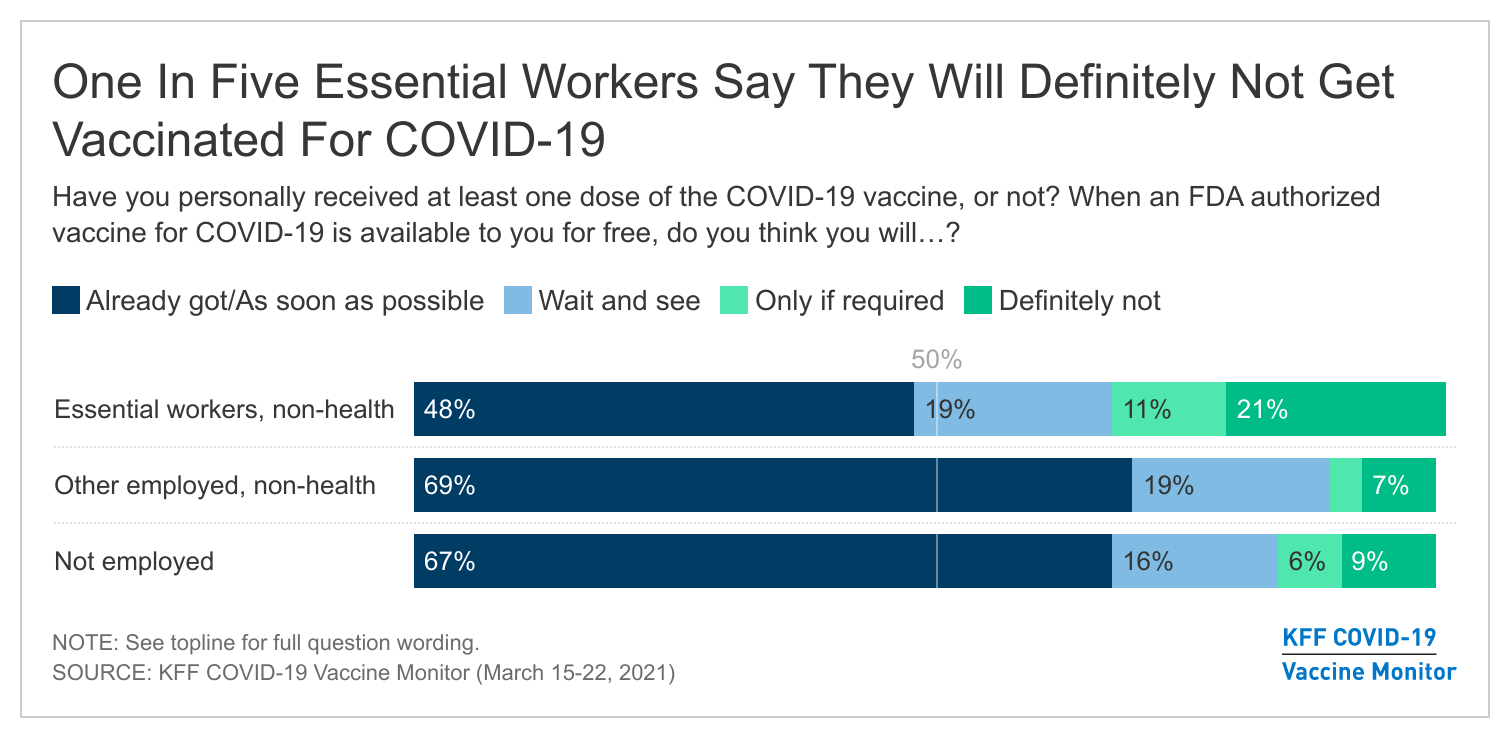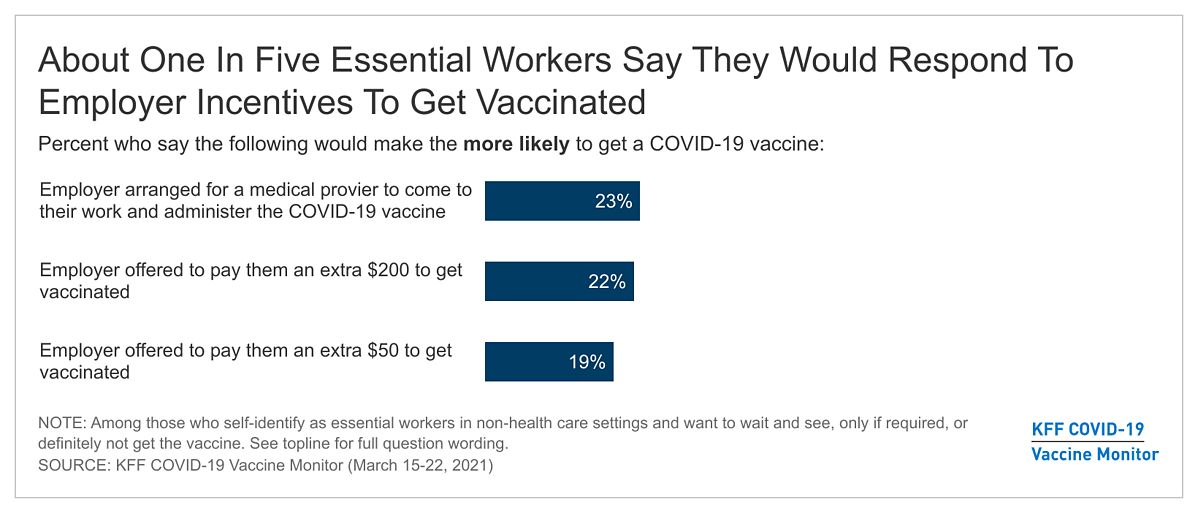There has been little research on how essential workers not employed in the health care sector have been impacted by the pandemic and their views on and experiences with COVID-19 vaccines. The latest KFF COVID-19 Vaccine Monitor report finds that this group of workers – roughly 3 in 10 of all adults who have been required to work outside their homes during the pandemic – are less enthusiastic about getting vaccinated than other adults.
As of mid-March, nearly half (48%) of non-health care essential workers said they had received at least one dose of the COVID-19 vaccine or will get a vaccine as soon as they can – fewer than the share among those who work from home (69%) and among adults who aren’t working (67%). Non-health care essential workers are also more likely than those who work from home to say they will get the vaccine “only if required” (11% vs. 3%) or that they will “definitely not” get vaccinated (21% vs. 7%).
These differences in enthusiasm in part reflect the underlying demographics of the two groups.
Compared to employed adults working from their homes, those identifying as essential workers are less likely to have a college degree (26% vs. 59%) and are more likely to identify as Republican or Republican-leaning independents (39% vs. 26%). People without a college degree and those who are or lean Republican in general are more likely to be resistant to getting a vaccine than their counterparts, though even after accounting for these and other demographic factors, essential workers are more likely than other adults to say they won’t get vaccinated.
Among essential workers who are not already vaccinated or planning to do so as soon as possible, two thirds (66%) say they worry about experiencing serious side effects, and about half (53%) are concerned they may have to miss work if they experience side effects from the vaccine.
The analysis finds employers could encourage some of these workers to get a vaccine through incentives. About 1 in 5 say they would be more likely to get vaccinated if their employer arranged for a health care provider to administer the vaccine at work (23%), or if their employer offered to pay them an extra $50 (19%) or $200 (22%) to get vaccinated.
Overall, most non-health care essential workers (57%) say that employers should not be allowed to require their workers to get vaccinated, compared to 42% of workers employed in other types of non-healthcare jobs.
The issue divides along partisan lines. Among non-health essential workers, those who identify as Republican or lean that way overwhelmingly say employers should not be allowed to mandate their workers get vaccinated (79%), while two thirds (65%) of Democrats and Democratic leaners say they should be able to do so.
Designed and analyzed by public opinion researchers at KFF, the KFF Vaccine Monitor survey was conducted from March 15-22 among a nationally representative random digit dial telephone sample of 1,862 adults, including oversamples of adults who are Black (490) or Hispanic (476). Interviews were conducted in English and Spanish by landline (356) and cell phone (1,506). The margin of sampling error is plus or minus 6 percentage points for results based on the sample of 477 essential workers. For results based on subgroups, the margin of sampling error may be higher.
The KFF COVID-19 Vaccine Monitor is an ongoing research project tracking the public’s attitudes and experiences with COVID-19 vaccinations. Using a combination of surveys and qualitative research, this project tracks the dynamic nature of public opinion as vaccine development and distribution unfold, including vaccine confidence and acceptance, information needs, trusted messengers and messages, as well as the public’s experiences with vaccination.



